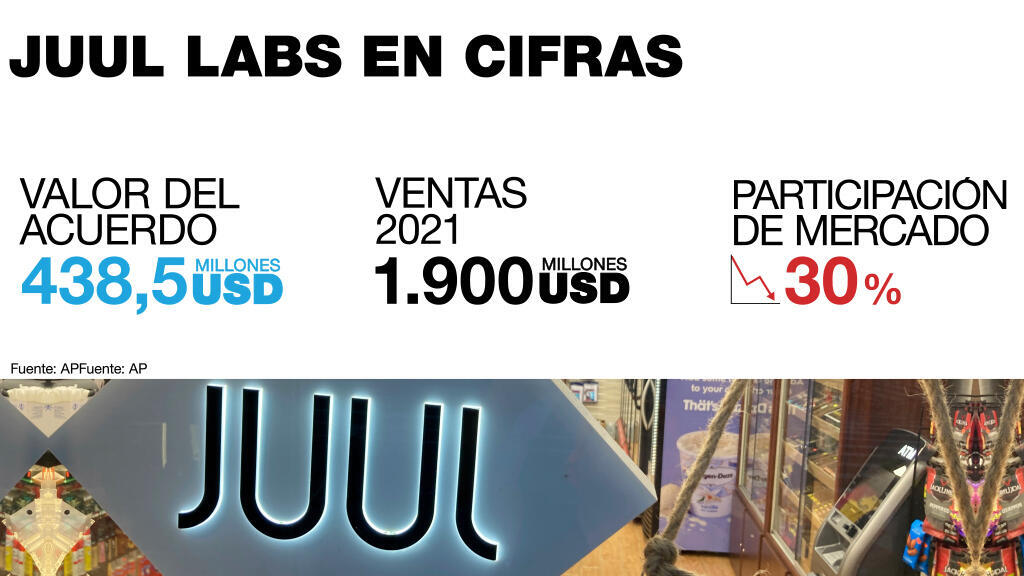First modification:
In the agreement, Juul Labs agrees to pay a millionaire sum to the 33 states –plus Puerto Rico–, which sued it for minimizing the risks of its products and targeting underage buyers. The company has been in the sights of the authorities for years, who accuse it of triggering the consumption of nicotine in adolescents.
Just under a decade ago, seven out of ten e-cigarettes sold in the United States were made by Juul Labs Inc. But its brightest moment has been overshadowed since health authorities turned their sights on the company.
Juul Labs managed to conquer more than 70% of the market several years ago, but in 2019 it undertook a change of direction that led it to withdraw most of the flavors that made it famous and stopped much of its advertising under pressure from regulators. .
In its latest move, the vape maker has agreed to pay $438.5 million to settle claims from 34 US states and territories that it harmed younger audiences to boost sales.
E-cigarette maker Juul will pay $438.5 million to settle claims by 34 US states and territories that it downplayed its products’ risks and targeted underage buyers. The deal stems from a two-year investigation led by Connecticut, Texas and Oregon https://t.co/5jqTeajP4G pic.twitter.com/SvQuNmPCRw
— Reuters (@Reuters) September 7, 2022
As part of the agreement, Juul agreed to refrain from certain types of marketing, including the use of cartoons and advertising to users under the age of 35.
The settlement stems from a two-year investigation led by prosecutors from Connecticut, Texas and Oregon and is just one of the largest of a dozen cases against him, some brought by representatives of youth who allege they became addicted to his products. of vaping
The sum to be paid, over six to 10 years, corresponds to about a quarter of Juul’s $1.9 billion in US sales last year.
Juuls: a before and after
Teen e-cigarette use skyrocketed in the years after Juul launched in 2015, prompting the Food and Drug Administration (FDA) to declare an “epidemic” of vaping among youth.
Health experts said the unprecedented increase raised the risk of hooking a generation of young people on nicotineinstead of benefiting from this technology as an alternative to smoking.
The multi-state investigation found that Juul marketed its e-cigarettes to underage teens with parties, giveaways, advertisements and social media posts using young models.
Juul initially sold its high-nicotine pods in flavors like mango, mint and cream. But these products have become a scourge in high schools, with dozens of students vaping in bathrooms and hallways.

That’s why since 2019, under pressure from health authorities, the company has been on the decline, removing all advertising in the United States and pulling its signature fruit and candy flavors from store shelves.
The biggest blow came in the middle of this year, when the FDA banned all Juul electronic cigarettes from the market, a decision that was challenged in court and, from which, the authorities reopened the scientific review of its technology.
The agency has licensed a small handful of e-cigarettes for adult smokers looking for a less harmful alternative to cigarettes.
With AP, Reuters and EFE











Add Comment